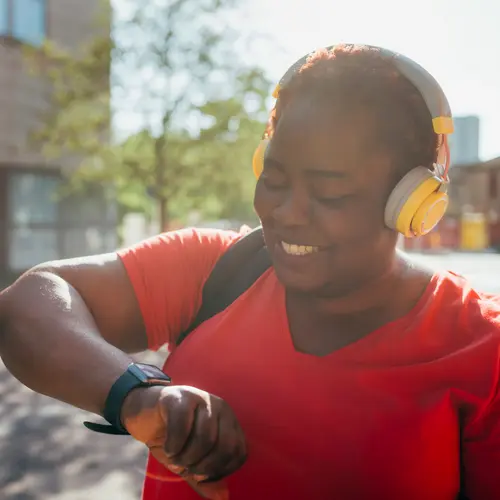You might have heard that you can’t eat fruit if you have diabetes. Fruit has carbohydrates and a form of natural sugar called fructose, which can raise your blood sugar levels. But it can still be part of your meal plan. It’s full of vitamins, minerals, and powerful plant compounds called phytochemicals.
Thanks to phytochemicals, eating fruit may lower your risk of heart disease, cancer, and stroke and boost your overall health. That's important because diabetes is linked to a higher risk of heart disease and other problems.
Many fruits are high in fiber, too. Fiber slows digestion, helping to prevent blood sugar spikes. It also makes you feel fuller, which can help you keep a healthy weight.
How Does Fruit Affect Blood Sugar?
Because they have carbohydrates, fruits will raise your blood sugar. So it’s important to count the carbs you eat and balance them with medicine, diet, and lifestyle choices. If you’re having trouble keeping your blood sugar under control, let your doctor know right away.
One serving of fruit has 15 grams of carbs. But the serving size can be very different depending on the type of fruit. For example, you get 15 grams of carbs from:
- 1/2 medium apple or banana
- 1 cup blackberries or raspberries
- 3/4 cup blueberries
- 1 1/4 cup whole strawberries
- 1 cup cubed honeydew melon
- 1/8 cup raisins
Carbs aren’t the only number to keep in mind. The glycemic index (GI) measures how a food affects your blood sugar. Foods that are low on the scale raise it slowly. Those high on the scale raise it quickly.
Eating mostly low-GI foods can help you keep control of your blood sugar. But they may not always be good for you. A candy bar and a cup of brown rice can have the same GI value. Be sure to keep nutrition in mind when choosing what to eat.
A large serving of a low-GI food will usually raise your blood sugar as much as a small amount of a high-GI food. So experts also use glycemic load (GL), a measurement that involves portion size as well as the GI number, to give more details about these effects. For example, an orange has a GI of 52 but a glycemic load of 4.4, which is low. A candy bar with a GI of 55 may have a GL of 22.1, which is high.
Healthy Ways to Eat Fruit
Small steps can make a big difference in your blood sugar levels. Be sure to:
- Watch your portion sizes, especially with dried fruit. Two tablespoons of raisins have the same amount of carbs as a small apple.
- Choose fresh or frozen fruit when you can. Processed fruits like applesauce and canned fruit in syrup or juice often have more carbs and can raise your blood sugar higher than fresh fruits.
- When you eat dried or processed fruit, check the label. Many have added sugar, and serving sizes can be very small.
- Go easy on the fruit juice. It’s high in carbs: Eight ounces of apple juice has 29 grams of carbs. And it doesn’t have fiber to slow digestion and prevent blood sugar spikes like whole fruit does. Research even links drinking lots of fruit juice with a higher risk of type 2 diabetes.
- Spread your fruit out over the day. Instead of two servings for breakfast, have one at breakfast and another at lunch or as a snack.
Healthiest Fruits for People With Diabetes
All fruits have vitamins, phytochemicals, and other things that make them good for you. But some are more likely to lower your chances of chronic disease:
- Blackberries. One cup of raw berries has 62 calories, 14 grams of carbohydrates, and 7.6 grams of fiber.
- Strawberries. One cup of whole strawberries has 46 calories, 11 grams of carbohydrates, and 3 grams of fiber.
- Tomatoes. One cup of sliced or chopped tomatoes has 32 calories, 7 grams of carbohydrates, and 2 grams of fiber.
- Oranges. One medium orange has 69 calories, 17 grams of carbohydrates, and 3 grams of fiber.
Low-GI Fruits
The fiber in fresh fruit helps keep most of them low on the GI scale (55 or under). Examples include:
- Apples
- Oranges
- Bananas
- Mangoes
- Dates
- Pears
High-GI Fruits
A few fruits are on the higher end of the GI scale (70 or higher). These include:
- Pineapple
- Watermelon

